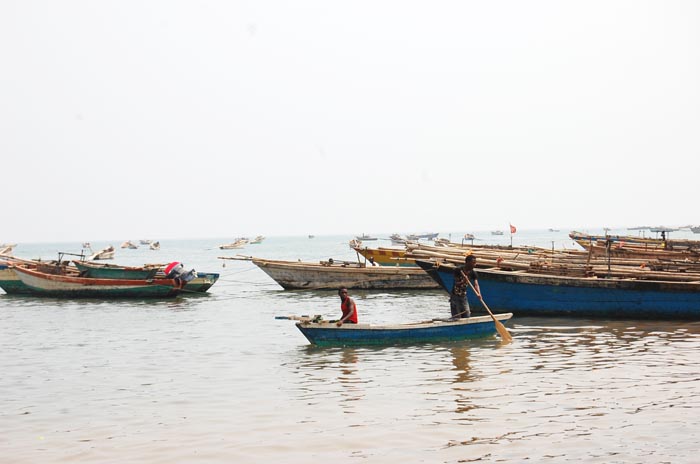The production of fish will certainly increase thanks to the largest program for fisheries in Africa. SmartFish has the main objective of improving the quality and quantity of fish in countries bordering Lake Tanganyika.-By Diane Uwimana
The so-called program SmartFish is operational in four countries which border Lake Tanganyika i.e. Burundi, Tanzania, Democratic Republic of Congo and Zambia. The program has five key objectives: “fisheries management, good governance, monitoring control and surveillance, regional trade and food security,” specifies Léonie Nzeyimana, Director of Water, Fishing and Fish Farming in the Ministry of Agriculture and Livestock and the Focal Point of the SmartFish Project.
Since March 2013, SmartFish has been operating in different areas and it already presents an effective impact. “Before setting up this program, fishermen didn’t respect any rule to the good treatment of Lake Tanganyika. Thanks to the program, we now learn via movies different techniques of fishing and we also build our capacity through what we watch. Anyone who is against the SmartFish, he is punished according to the new program,” says Gabriel Butoyi, the Chairman of the Fishers’ Network Federation. He goes on saying that the production of the fish will increase if fishermen will respect the aquaculture protocol by using the right fishing nets for right fish.
“The program will replace the old fishing law”
Up to now, the existing law aged about seventies doesn’t contain any penalty. “Those who commit any blunder, they only pay BIF 5OO. And there isn’t also any fishing control. Everybody has access to the fishing practice,” explains Nzeyimana. Today, Burundi presents eight thousand fishermen and the latter occupy 8% of Lake Tanganyika while Zambia 6%, DRC 45% and Tanzania 41%. It is worth indicating that Burundi gets a production of 15 million tons of fish per year. “But the production has fallen due to the mistreatment and pollution of the Lake. In 2010, we have got more than 20 million tons of fish, now the quantity has been regressively reduced to 15million tons,” regrets Nzeyimana. She mentions that fishermen’s community have received some training sessions about fisheries management, good governance, monitoring control and surveillance, regional trade and food security for the sake of capacity building. “If the aquaculture protocol is approved by the bordering countries of Lake Tanganyika, the production will without any doubt increase,” she adds. She notes that the enthusiasm, energy and positive approach to this work ensure the successful completion of the program. However, the Director of Water, Fishing and Fish Farming calls upon everybody to protect Lake Tanganyika by avoiding its pollution. “Due to the threats located in the Lake, those who will be caught will be punished according to the law of the new program,” she adds. SmartFish programme in collaboration with Lake Tanganyika Authority (LTA) has facilitated an aquaculture protocol and community sensitization events using videos and live debates to some fishermen.















 IWACU Open Data
IWACU Open Data

